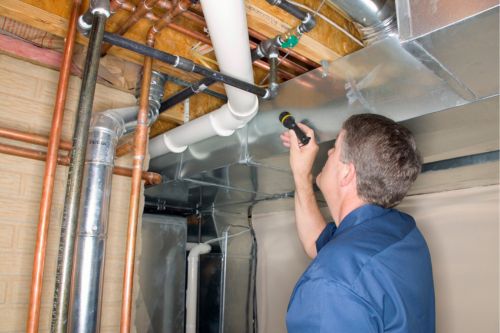It takes a village to purchase a home. Though it’s ultimately you who is paying for the property, successfully purchasing a home is a result of several people’s contributions. It helps to know who these individuals are, how they responsibilities pertain to your home purchase, and when you’ll encounter them during your journey. Here are ten important people to keep in mind during the process of buying a home.
10 Important People in the Home Buying Process
1. Real Estate Agent
You’ll be represented by a buyer’s agent throughout the home buying process. Their access to resources and their specialized knowledge will help you find the home you’re looking for and make an offer to the seller. They will be by your side from day one, through closing and beyond. When searching for a real estate agent, ask questions to gain an understanding of their professional expertise as well as their personality. You’ll be working closely together throughout the process, so it’s important to identify someone who is compatible.
2. Mortgage Lender
You need financing to buy a home. Mortgage lenders offer different home loans to match what buyers can afford and what homes they’re looking to purchase. After identifying which lender you’d like to work with, a helpful first step is to get pre-approved for a mortgage by submitting financial information for their review. This helps to speed up the home buying process and solidifies your offer by demonstrating that you’re ready to buy.
3. Mortgage Broker
Your mortgage broker will work with you to find favorable mortgage terms for your home loan. Whereas your real estate agent works with you to find a home and communicates with the seller on your behalf, your mortgage broker works on the financial side of the transaction. Once you’ve chosen the right loan product, they’ll hand things off to the lender.
4. Underwriter
Another key player in the mortgage process is the underwriter. Underwriters review mortgage applications, looking at credit history to assess your ability to pay your loan. A mortgage loan doesn’t get the green light without an underwriter’s approval; if they find any issues, they’ll either deny the loan or require the applicant to provide more information before deciding.
5. Home Inspector
The home inspection is key to the home buying process. It gives you a chance to get a thorough examination of the home to discover which repairs need addressing, if any. The findings of the home inspector’s report will set the table for continued negotiations with the seller and their agent. Buyers will often include a home inspection contingency in their offer to allow for renegotiation or canceling the contract entirely.

Image Source: Getty Images – Image Credit: Jupiter Images
6. Home Appraiser
A professional appraiser will determine a home’s appraised value, which ensures that the lender is loaning the correct amount of money. Home appraisers are third parties to real estate transactions; they have no vested interest in either side of the deal. The home’s square footage, features, and condition all factor into their assessment. If there’s a discrepancy between a home’s appraised value and the loan amount, you and the seller will go back into negotiations.
7. Seller
It takes two to tango. The seller is your counterpart in the home buying process, and they want to sell their home for the best price to the right buyer. Accordingly, you’ll work with your agent on how to make an offer that’s most appealing to the seller. This looks different for each real estate transaction. For example, if you find yourself in a bidding war, the seller may value offers that show flexibility toward the inspection and contingencies. Talk to your agent for more information.
8. Listing Agent
The listing agent represents the seller. Your agent will work with them to iron out the details of your offer and move the deal along toward completion. After the home inspection, the listing agent will also be the main point of contact for any repair requests.
9. Title Company
Before the home is officially yours, a title company will conduct a search of the property’s history and public records to make sure its title is in good legal standing. Titles and deeds have very specific language that makes the transfer of ownership official. Title companies will make sure that everything in these documents is properly recorded during the closing process.
10. Homeowners Insurance Company
Once you’ve purchased a home, you need to protect it. Homeowners insurance policies cover your home, your belongings, injury, or property damage to others, and living expenses if you are temporarily displaced from your home due to an insured disaster. The coverage you’ll need will depend on your home’s location and condition, but what’s most important is that you’re fully protected as a homeowner.
For more information on the home buying process, connect with a local Windermere agent:
Featured Image Source: Getty Images – Image Credit: grandriver
 Facebook
Facebook
 X
X
 Pinterest
Pinterest
 Copy Link
Copy Link




